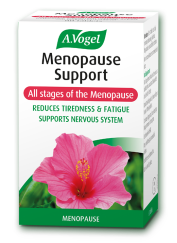An introduction to mood swings and menopause
Mood swings are one of the most commonly experienced symptoms of the menopause.
For some, the menopause can be like sitting on an emotional pendulum; up one minute and down the next. Just as things seem to be going well and you are in good spirits, something happens and your mood goes crashing to the ground again.
Mood swings affect every woman differently, although there are many consistencies in the symptoms. Most women experience unexplained moods which are continually changing, reactions far stronger than a particular situation merits, irritability and less tolerance or patience than normal.
Mood swings can be frustrating, particularly when they seem out of control and out of character. It can seem that no-one, including your partner, understands what you are going through. It is important to try to explain the symptom to those around you, and also to realise that many menopausal women are going through the same experience.
Why does menopause cause mood swings?
The menopause is a time when the body is going through major hormonal changes. The hormones which trigger ovulation and menstruation are also important for releasing a mood-regulating chemical called serotonin.
As these hormones decline when you approach the menopause, so does the level of serotonin. Unfortunately the decline of these hormones is not a smooth and steady descent but a bumpy road down. When serotonin level is high, your mood soars; when it is low, so is your mood.
The menopause can also result in other symptoms such as hot flushes, sleep problems and memory lapses. These can be frustrating and add to your irritability. It is important to remember that all of these symptoms are a result of your hormones changing, and often these ease once you are through the menopause.
What home remedies are there for mood swings?
While it often seems that way, mood swings do not have to take over your life. There are simple changes to your lifestyle which can have a significant positive impact on your daily life.
Getting out in the fresh air can help to lift your mood. Exercise is also extremely beneficial, and it may be worth taking a walk each day even if only for 10-20 minutes. Exercise is also likely to improve your quality of sleep, which somehow makes situations the next day seem much more controllable.
- Diet plays an important role in your mood. A bad diet or one full of caffeine and refined sugar can cause your energy levels to soar and crash, taking your mood with it. A healthy balanced diet will keep your energy levels and mood much more stable. Complex carbohydrates, such as those found in wholemeal breads, peas and beans can help raise serotonin levels, improving your mood. Having dried fruit will keep your blood sugar more stable than chocolate, cakes or sweeties
- Eating small and regular meals may be better for your mood than eating a couple of really big meals. Everyone is different, so trying different approaches to see what suits you can be beneficial
- There is a strong correlation between magnesium levels and mood. It appears that lowered levels of magnesium can result in low mood and poor sleep, and so taking a magnesium supplement may help with your symptoms.
Are there herbal remedies to help me?
Herbal remedies can be an effective solution if you suffer mood swings without being as intrusive as some conventional medicines such as HRT.
If your periods have more or less stopped, use a supplement containing soya isoflavones – plant substances known as phytoestrogens because they mimic the oestrogenic hormones in your body. TIP: Menopause Support contains isoflavones from fermented soy, hibiscus and magnesium and can help with general symptoms of the menopause, seeing you through this time of life.
TIP: Menopause Support contains isoflavones from fermented soy, hibiscus and magnesium and can help with general symptoms of the menopause, seeing you through this time of life.
 "Menopause support tablets have eased my problems. I would recommend them to any one suffering the effects of the menopause."
"Menopause support tablets have eased my problems. I would recommend them to any one suffering the effects of the menopause."![]()
Read more customer reviews
If you are still having regular periods, but coming up to the menopause, you might also have other symptoms which remind you of PMS. If this is the case, use Agnus castus.
 "This product is amazing, it has improved my moods leading up to menstruation by 75%!"
"This product is amazing, it has improved my moods leading up to menstruation by 75%!"
![]()
Read more customer reviews
If your mood swings are the main or most troublesome symptom, you may wish to use St. John’s wort.
 TIP: St. John’s wort can be used together with soya isoflavones or Agnus castus.
TIP: St. John’s wort can be used together with soya isoflavones or Agnus castus.
 "They work for me. I no longer feel down or low in mood. I just feel normal."
"They work for me. I no longer feel down or low in mood. I just feel normal."![]()
Read more customer reviews
What about conventional medicine?
If you feel that your mood swings are severe or an indication of a more serious medical condition such as depression, it is important to speak to your doctor for advice.
Depression during the menopause must be managed by your doctor. Your doctor will discuss treatments with you, such as anti-depressants to ease your symptoms. It is important to understand the side-effects before taking these. He may also ask you to consider treatment with HRT to help stabilise your hormones.








